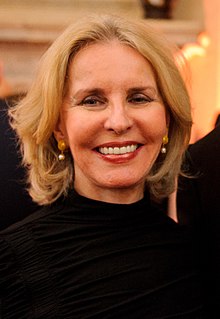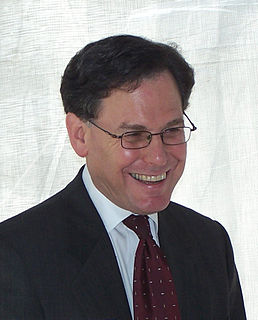A Quote by Peter Bergen
The centerpiece of the Bush administration's case for going to war in Iraq was Secretary of State Colin Powell's presentation to the U.N. Security Council on February 5, 2003, six weeks before the invasion.
Related Quotes
In 2002 and 2003, the Bush administration decided against bombing Zarqawi's camp in northern Iraq because it might derail plans to depose Saddam Hussein. By focusing on Zarqawi in his speech at the United Nations, Secretary of State Colin Powell inadvertently spread his fame throughout the Arab world.
The first weekend after the attacks of September 11, George W. Bush had a meeting at Camp David with his top advisors, including Colin Powell, the secretary of state. And there was a lively debate about Iraq policy, in which some people from the Pentagon were arguing that the war against terrorism should include Saddam Hussein.
My journalistic mission was straightforward: to await the U.S. invasion of Iraq. Nobody knew quite when this would be. But the diplomacy - the meetings in the U.N. security council, the allegations about weapons of mass destruction, the martial language of Tony Blair and George W. Bush - all suggested a war was brewing.
I think the key anecdote in the book is when Colin [Powell] and I were discussing Iraq. Colin was upstairs in the Treaty Room, in the residence. And he talks about his concerns about the use of military in Iraq. And I said I felt the same concerns, but it might be that we have to use it. In which case, he said, "I support you."
I think what history will show is that one of the most tragic results of the war in Iraq will be that although Sharon, the Likudites, the Neoconservatives in our country, President Bush and the Democratic party thought the war in Iraq and destroying Saddam would benefit Israeli security, we're seeing absolutely that the war in Iraq has probably put Israeli security in a more tenuous condition than it's been in since the founding of the Israeli state.
Senator McCain is all for John Kerry. Do you know they're buddies? McCain is in favor of Kerry being secretary of state. Somebody the other day suggested, maybe it was just today, a bipartisan compromise and nominate Colin Powell to be secretary of state again. What would be bipartisan about that? He's not a Republican.
Who was it in Afghanistan who screwed up in Tora Bora and let bin Laden escape? It was the Bush Administration. Who leached all the resources, military and civil, from Afghanistan, creating the instability that we see there today in order to prepare for the misbegotten invasion of Iraq? It was the Bush administration. If there's a terrorist problem today, who is responsible now? Bush has not done the job.
































